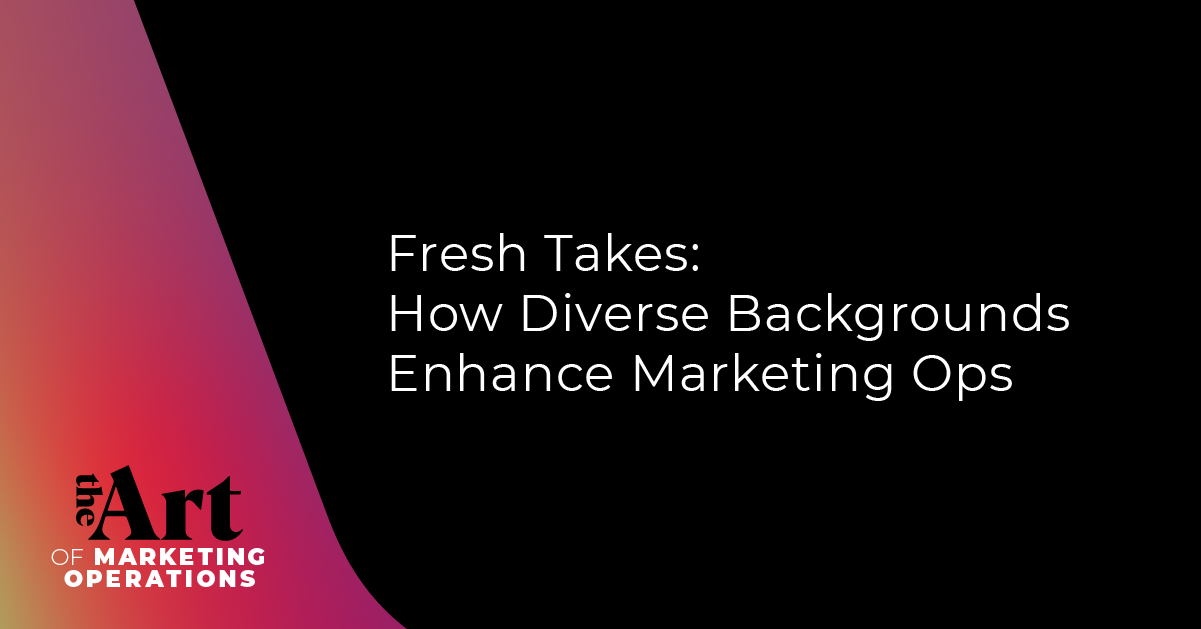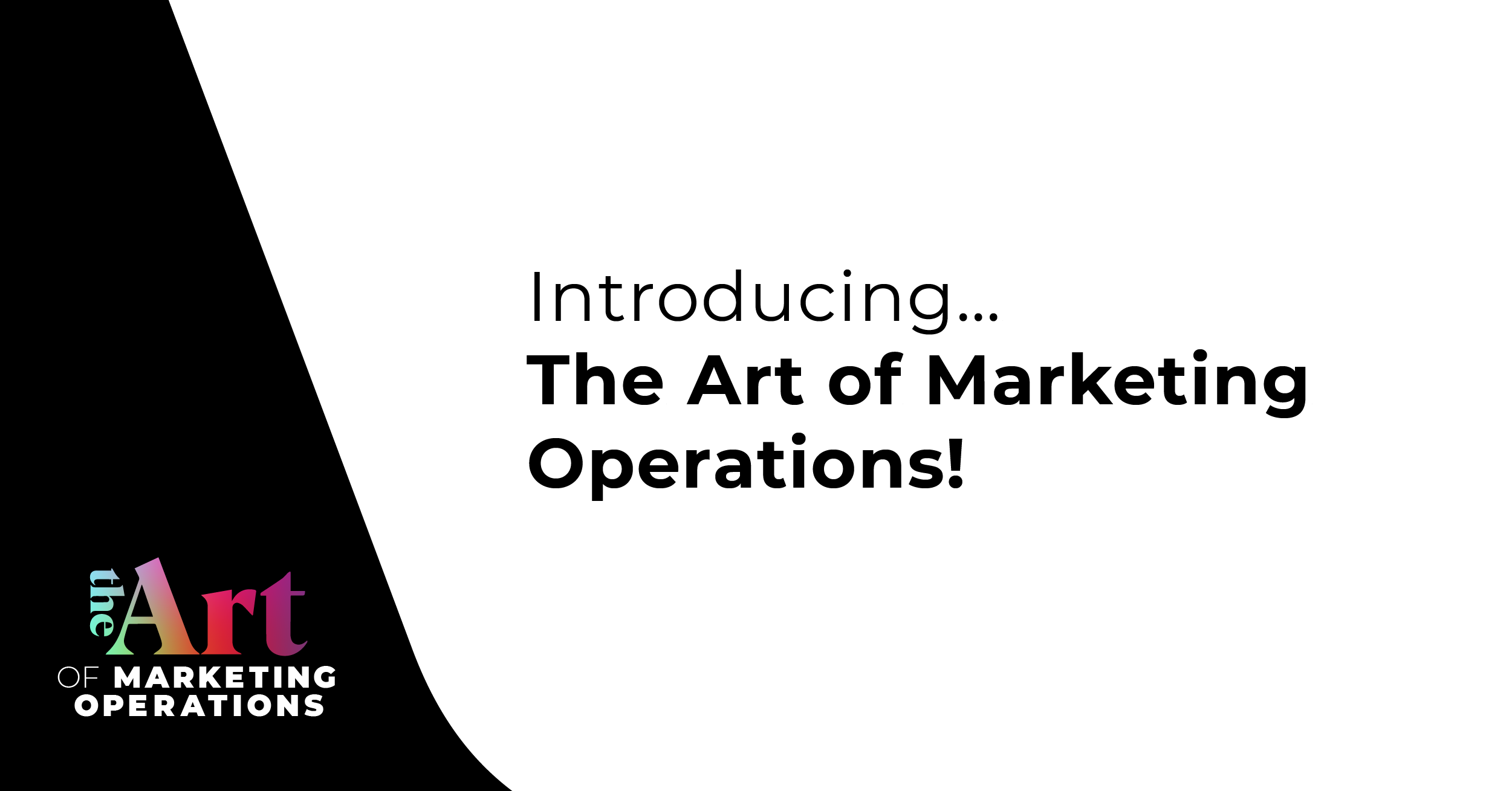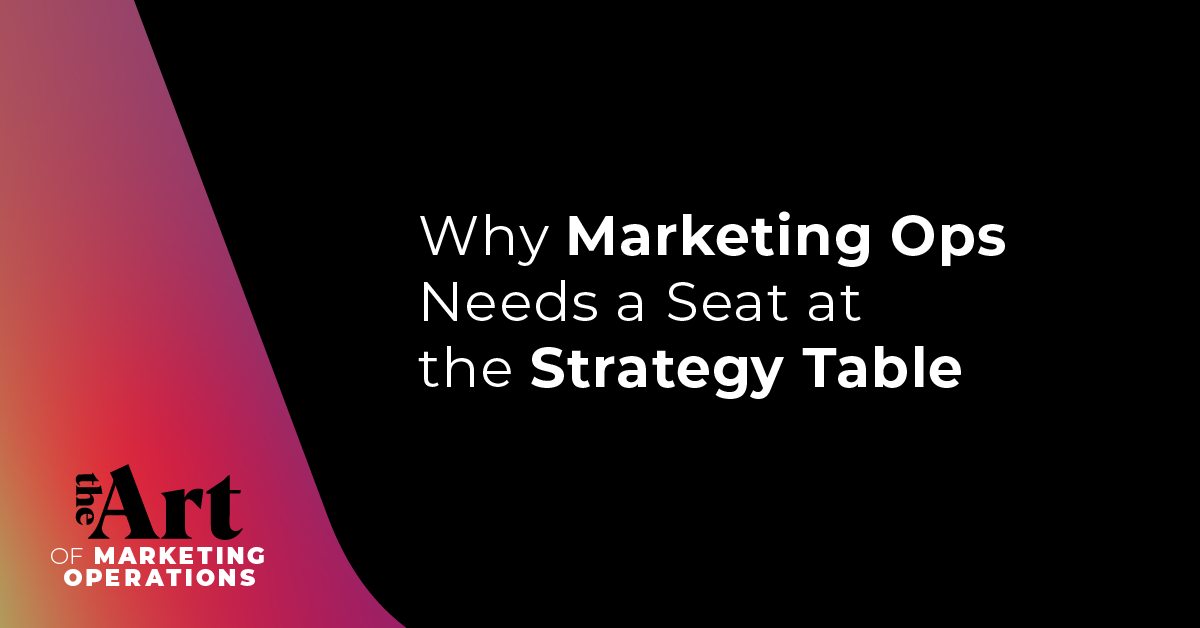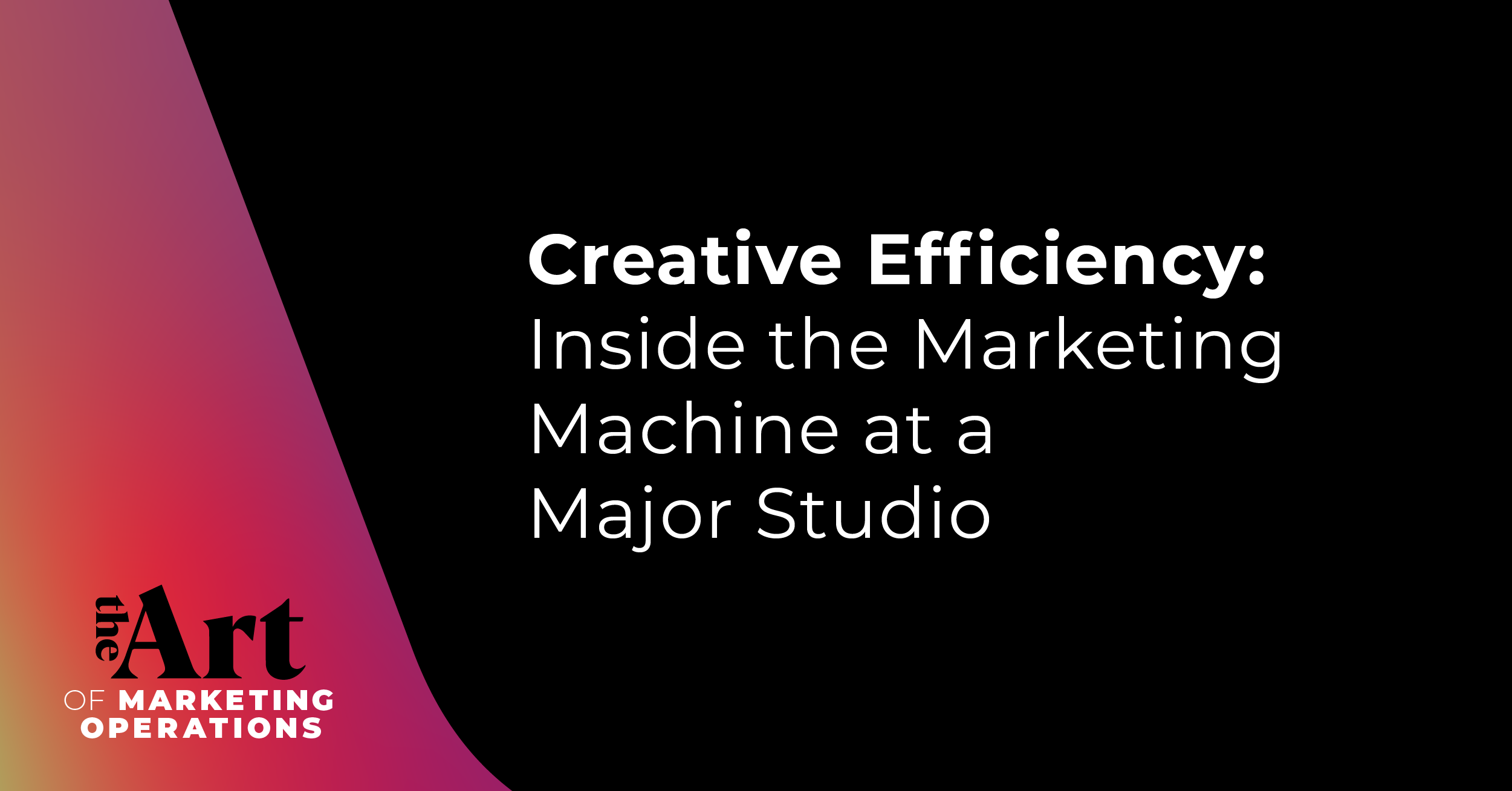One significant sign of a successful triumvirate of data processing systems: scalability. Without data analysis and metrics, you can’t succeed.
But the systems and processes that lead to progress will vary depending on your business size, industry and stage. It isn’t until your processing systems have stood the test of time and grown with you that they truly signify success.
Just ask our latest guest, Matt Lauer, Marketing Operations Manager at Alloy, who is steadfast in his belief that data holds the key to making any impactful decision in marketing ops and beyond.
Join us as Glenn and Matt discuss:
- The importance of data and metrics in determining success
- Navigating learning curves in marketing ops amidst competition, regardless of industry
- Pairing adaptability, change and data-driven decision-making
Matt has an incredible passion for — and amazing insights into — this discipline. Let’s take a closer look at this essential intersection and what it means for the future of marketing operations.
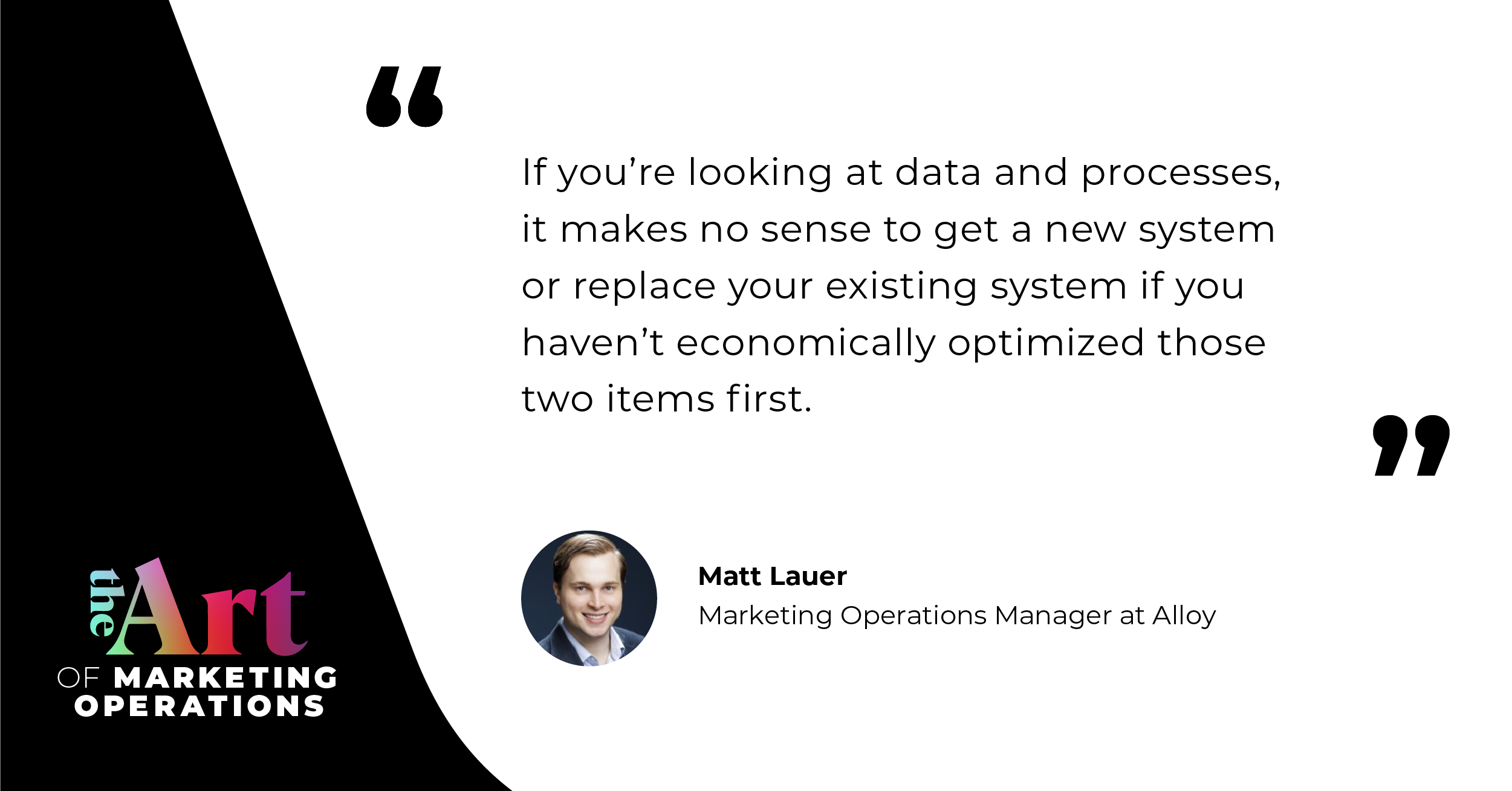
Building the machine
Matt began working for a nonprofit public policy organization right out of Washington University in St. Louis, where he pursued a double major in Finance and PoliSci.
As a business development representative, he was responsible for delivering the group’s messaging and onboarding up to 100 new members each week. His gift for creative thinking and his stellar customer service skills led to a promotion within his first year to a membership management position.
“In 2016, there was this enormous project where we were trying to recruit 3 times the previous yearly maximum of members,” Matt recalls, adding that the project was desperately behind schedule and bogged down by a clunky CRM.
Having always been tech-oriented and computer-savvy, he’d already positioned himself as a CRM expert. He quickly realized that the data desperately needed to be refined, processes were painfully slow, and the current dashboards were inadequate for the scale of the project.
He custom-crafted a scalable machine that boosted efficiency and leveraged automation to deliver actionable data and clear KPIs, which helped his team achieve their goal weeks early.
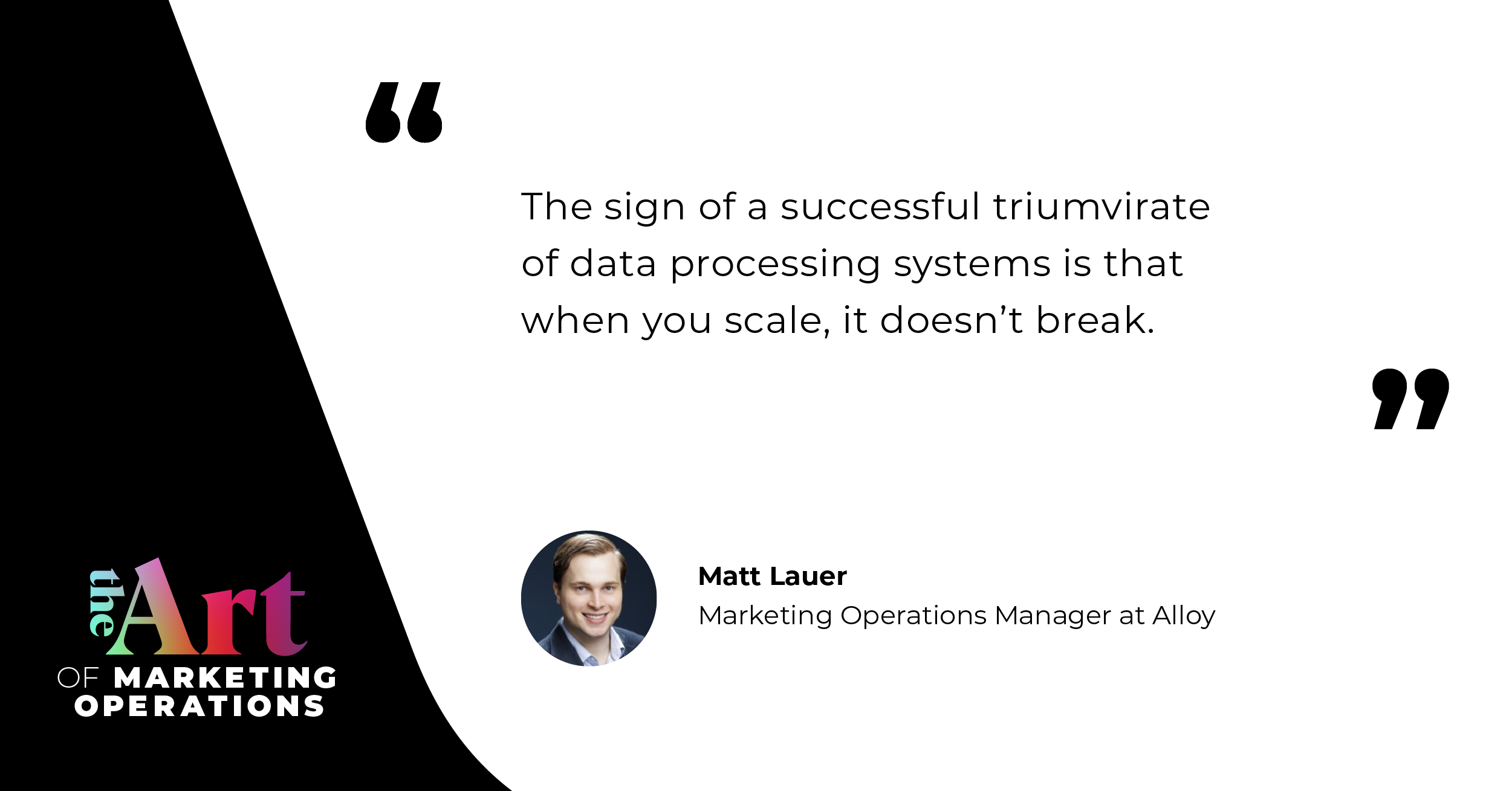
The 3 pillars
There are literally thousands of marketing operations tools out there, but Matt believes the most important are your CRM and automation tools.
Matt says those are typically the ones that bright-eyed new staffers inherit and just have to deal with, because “to change them — especially if your company has any age to it — is an insane undertaking.”
“It’s not something for the faint of heart,” he adds.
To properly evaluate and master whatever tech-stack hand you’re dealt, Matt recommends assessing them through the lens of “the 3 pillars” — process, data and systems.
Startups and grassroots organizations typically have microscopic marketing budgets, at least in the early days, and you just have to make do with what you have as efficiently as possible.
“I really appreciate nonprofits being able to give you that on-the-spot training for geeks in scrappiness,” Matt jokes.
His skills and experiences in low-budget problem-solving helped prepare him for a marketing leadership position at Alloy. This decisioning platform helps banks and fintechs automate their decisions for onboarding, transaction monitoring, and credit underwriting.
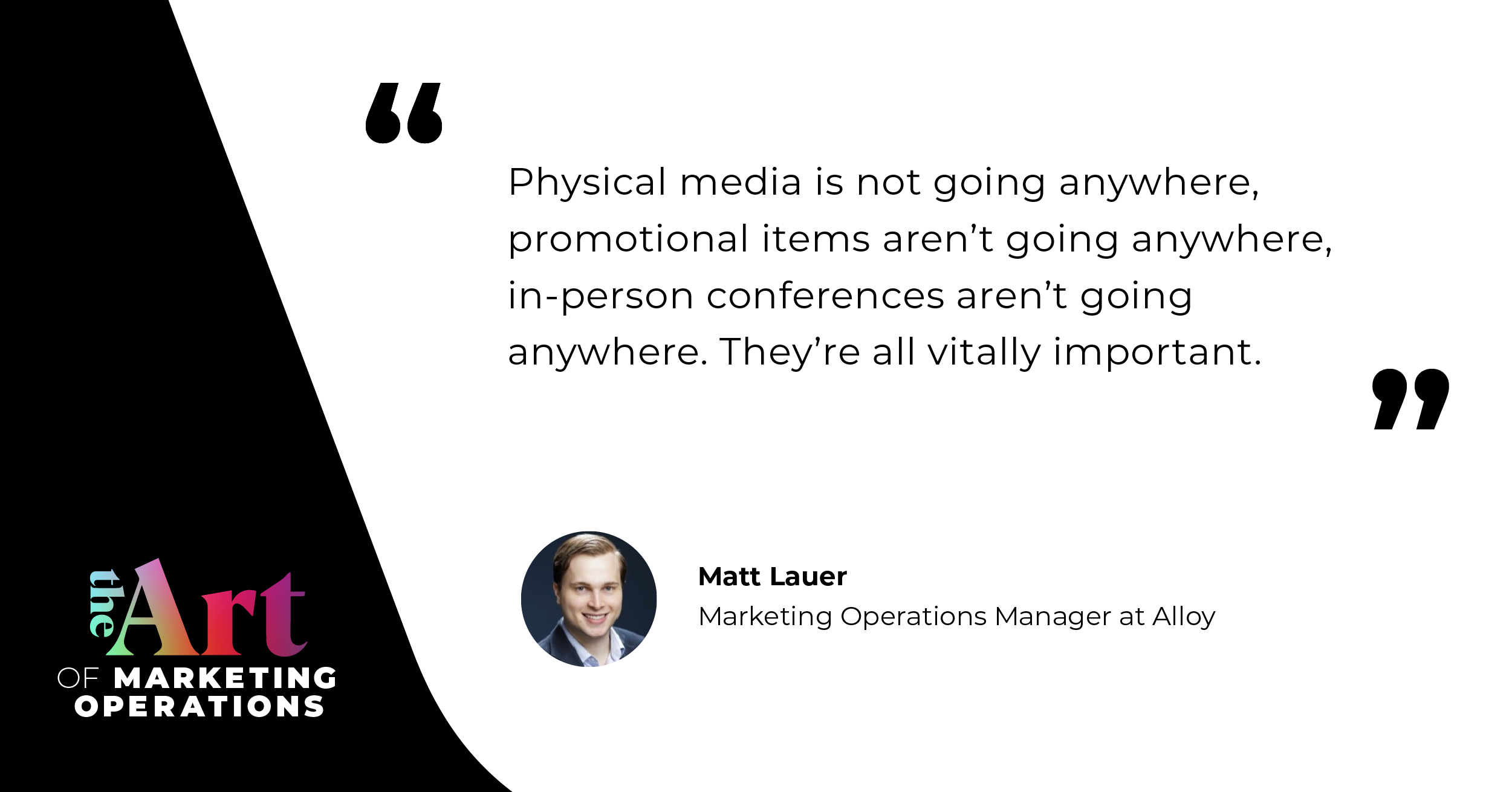
The foundation of scalability
Every team is different, but Matt has found what he feels is the most successful approach to sussing out a new environment.
“You go in, figure out who you’ll work with the most, ask them what’s working and what’s not — and then just shut up and let them speak.” He believes that the fundamental mission of marketing operations is to solve process, data or system problems.
It’s all about active listening, shortening the feedback loop and delivering better solutions for internal and external customers. Matt feels that this perspective is crucial when it comes to building a scalable, effective strategy.
While the marketing industry is evolving rapidly, it’s smart to embrace both traditional and cutting-edge methodologies. Physical media and in-person events “aren’t going anywhere. They’re all vitally important.”
For those just starting out, he recommends taking advantage of the plethora of resources available on LinkedIn.
“Find people who post about marketing operations, follow them and start absorbing this information,” he advises.
Now is the time to ensure your infrastructure is sound and make sure you’re ready for new opportunities today and whenever we exit “this techmageddon recession.”
Want to learn more about how to advance your brand with the 3 pillars of marketing operations? Listen on Spotify, Apple Music, or wherever you find your podcasts.





